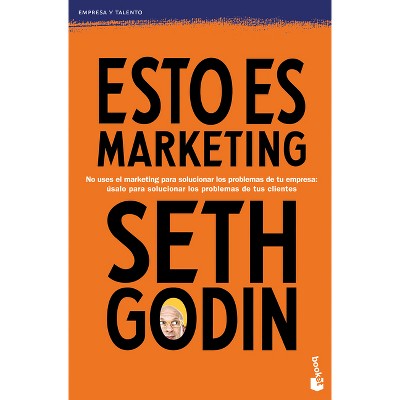About this item
Highlights
- How national culture impacts organizational culture--and business success Using extensive case studies of successful global corporations, this book explores the impact of national culture on the corporate strategy and its execution, and through this ultimately business success--or failure.
- About the Author: Kai Hammerich, MBA (Kellogg Business School with Distinction), MSc.
- 320 Pages
- Business + Money Management, Strategic Planning
Description
Book Synopsis
How national culture impacts organizational culture--and business successUsing extensive case studies of successful global corporations, this book explores the impact of national culture on the corporate strategy and its execution, and through this ultimately business success--or failure. It does not argue that different cultures lead to different business results, but that all cultures impact organizations in ways both positive and negative, depending on the business cycle, the particular business, and the particular strategies being pursued. Depending on all of these factors, cultural dynamics can either enable or derail performance. But recognizing those cultural factors is difficult for business leaders; like everyone else, they too can be blind to the culture of which they are a part.
The book offers managers and leaders eight recommendations for recognizing those cultural factors that negatively impact performance, as well as those that can be harnessed to encourage superior performance. With real case studies from companies in Asia, Europe, and the United States, this book offers a truly global approach to organizational culture.
- Offers a fresh approach to the effects of national culture on organizational culture that is applicable to any country in any region
- Based on case studies of such companies as Toyota, Samsung, General Motors, Nokia, Walmart, Kone and British Leyland
- It describes the origins and nature of the most common corporate crisis and how culture impacts the response to such a crisis
- Ideal for managers, business leaders, and board members, as well as business school students
A welcome response to the flat-Earth fad that argues we're all alike, this book offers a nuanced and practical view of cultural differentiators and how they can enable or derail business performance.
From the Back Cover
The message of this book is simple: national culture, through its influence on corporate culture, has a powerful but often-invisible impact on the success of global companies. What's more, the very same national traits that accelerate growth at one stage of the corporate life cycle may derail that growth at a different stage or when an inevitable crisis hits.
How did Samsung Electronics become the world's largest consumer electronics company in less than 20 years, unseating dominant Sony Corporation in the process? What pivotal role did the national heritage of both companies play in this? How did Toyota create a sustainable competitive advantage for almost 25 years, by adapting a global business philosophy deeply rooted in Japanese culture? How did the Finnish roots of Nokia and the American roots of GM first help both companies, only later to derail their success?
In a global world where most processes and products can and will be copied, culture matters more than ever, and as this book shows, can be a source of sustainable competitive advantage! As they say: 'Culture eats Strategy for lunch!' Through case examples that include: Toyota, Austin Motor Company (later British Leyland), Samsung, Sony, Nokia, and P&G, Hammerich and Lewis provide a new conceptual framework and 10 vital tools for analyzing corporate culture and diagnosing the dynamics that drive the success of global companies.
Review Quotes
"The real challenge this book provides is that companies need to recognise that cultural change does not happen simply by chance or desire, but requires real management focus throughout the organisation. The opportunity that awaits those organisations that achieve this is extraordinary and creates long-term sustainable businesses." (Financial Advisor, April 2014)
"... in focusing on culture they are clearly onto something important.... Fish Can't See Water is full of interesting insights into modern business." (The Economist, October 2013)
"The book offers a readable tour through organisational culture...." (Professional Manager, September 2013)
"With case studies from Asia, Europe and the US, the book offers a thorough insight into how even the smallest of cultural traits can affect businesses immensely." (GulfBusiness.com, September 2013)
"This is a thought-provoking read for anyone working across cultures." (The CA, August 2013)
About the Author
Kai Hammerich, MBA (Kellogg Business School with Distinction), MSc. is Danish and an international leadership and talent consultant with Korn Ferry, living in London. He has been nominated by Business Week as one of the most influential headhunters worldwide. He advises boards and leadership teams of global corporations on talent, succession and cross cultural transformations that accelerate corporate performance.
Richard D. Lewis is a well renowned British linguist who created Richard Lewis Communications - a language school for executives as well as a company that advises on cross-cultural issues facing business executives. Richard has written a number of books including the bestselling When Cultures Collide.












